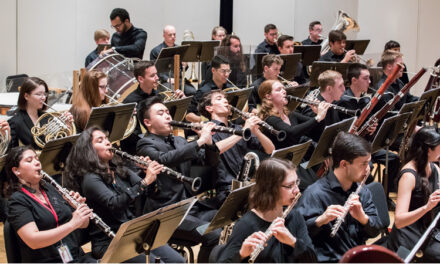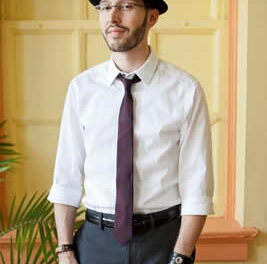The new Ulysses Festival of the arts is an accidental creature and, in its first spring, more than a little bit flimsy and sloppily put together. There is no official booklet gathering the 22 Ulysses events between the same covers, not even a common cover for the individual programs. At the two Festival events I’ve attended so far, NC Dance Theatre‘s Sleeping Beauty and Opera Carolina‘s Eugene Onegin, not a word has been spoken to indicate that the productions were part of a citywide celebration of Tchaikovsky and “The Majesty of Russia.” Were there brochures or logos available in the lobby? Not enough at Knight Theatre for the ballet or Belk Theater for the opera to stop people in their tracks or to help cross-pollinate Ulysses with audience members. Ironically, the symbol of the new spring Festival, the Ulysses butterfly, isn’t indigenous to Charlotte, the Carolinas, or the continent. It’s native to a rainforest in Queensland, Australia, and if it were a valid symbol of springtime (it actually occurs year-round), the Ulysses would be springier down yonder in September. Better than the inept branding and marketing, Opera Carolina’s Eugene Onegin illustrates the essence and potential of Charlotte’s new spring festival, uniting the three core organizers in live performance, with NCDT bolstering the customary Opera-Symphony collaboration by chipping in three of their dancers, past and present, for the Act 3 polonaise.
Having seen the Met Live in HD production of the opera in 2007 at a local multiplex, starring Dmitri Hvorostovsky and Renée Fleming, I learned something very illuminating about Eugene Onegin when I encountered it again at Belk Theater. It’s nearly as easy to view the heartbreaking story from Onegin’s point-of-view as it is from Tatyana’s, the young woman he spurns and who, years later and fully matured, spurns him in return. Onegin is cold, if not quite cruel, in rejecting Tatyana’s impetuous advances, and he compounds his misdeeds by inciting his best friend Lenski to such a fit of jealousy that the two men fight a duel. So Onegin kills the man who – had he yielded to Tatyana – would have been his brother-in-law as well. Ah, but Onegin suffers for what he has done, a full Russian suffering, and when he sees Tatyana again, poised and regally married to a prince, he realizes how utterly mistaken he has been. It’s possible to empathize with this arrogant cad even as Tatyana – anguished and torn, because she’s married to a far older man – administers his just deserts.
Stage director Brian Deedrick certainly wants us to feel this empathy, for while Opera Carolina maestro James Meena conducts the Charlotte Symphony in the overture, Vasily Ladyuk makes his first appearance as Onegin alone in a darkened room, silently brooding over the irretrievable past we are about to see. Unfortunately, Ladyuk isn’t nearly what Hvorostovsky was in this role. In the first two acts, until he guns down his friend, Ladyuk’s baritone is marginally thinner, but his cosmopolitan hauteur as Onegin is all you could wish, verging on cruelty when rejecting Tatyana and quarreling with Lenski but never crossing the line. What Ladyuk can’t do is turn the corner in Act 3 – two years later in the supertitles, six years later in the program notes – when he returns and finds Tatyana a true princess to the bone. Encountering the blissful Prince Gremin, who plainly treasures Tatyana, we see nothing like inner conflict as Onegin decides to betray and cuckold his royal friend. In the climactic tête-à-tête with Tatyana, Ladyuk appears more like an infuriated selfish man who’s been thwarted than an anguished, chastened, desperate man finding out that the woman he once looked down upon is better than he. Where Hvorostovsky gilded the warmth of his voice in the final duet, his pleading edging toward broken begging, Ladyuk is nearly barking an enraged, absurd command.
So despite the staging, you’ll likely view the denouement from Tatyana’s point-of-view, especially since soprano Dina Kuznetsova is better suited to the role than Fleming. I struggled to believe Fleming was 16 in the first two acts, and she struggled to project the wild compulsiveness of the teen in the giddier moments of the famed Act 1 letter scene. Kuznetsova whirls about in those exultant moments with exactly the right mix of jubilation, disbelief, and recklessness as she completes the deed – signing her passionate confession of love and putting herself totally in this magnetically aloof stranger’s hands – and her voice is nearly as creamy as Fleming’s in the quieter, more rhapsodic moments of her reverie. Then in Act 3, her transformation from shy girl to assured princess is as convincing as Patricia Racette’s was in 2002 when I saw her perform the role in Santa Fe. The fire of virtue finally frees her from the chains of desire – and a man unworthy of her – in the final showdown as we circle back to the brooding opening tableau.
Supporting roles are beautifully acted and sung, whether they’re dramatic, comic, or sentimental. As Olga, Tatyana’s younger sister, mezzo-soprano Dawn Pierce radiates a pure-toned sunniness that’s perfect for both her susceptibility toward Onegin’s gallantries and her petulance toward Lenski’s jealousy. Her chemistry with tenor Yeghishe Manucharyan as the poet Lenski is a little like teen siblings’, and he projects the poet’s fatal idealism with a spirited stubbornness of his own. In a flamboyant tenor cameo, John Kaneklides injects a welcome interlude of comedy into Act 2 as Monsieur Triquet, an outrageously foppish – and gangly – dandy who presents a hilarious poem to Tatyana before the big macho quarrel between Lenski and Onegin. For his part, baritone Kristopher Itmiter infuses a sunset glow into the Prince’s satisfaction with his Tatyana in his Act 3 aria. Instrumentally, much the same can be said of French hornist Frank Portone, echoing the opera’s most memorable tragic theme over and over. The whole orchestra responds beautifully to Meena’s baton, capturing the richness and the melancholy of the score.
Check the sidebar for details of remaining performances.
*Note: For a Letter to the Editor concerning this review, see https://cvnc.org/article.cfm?articleId=5439.












